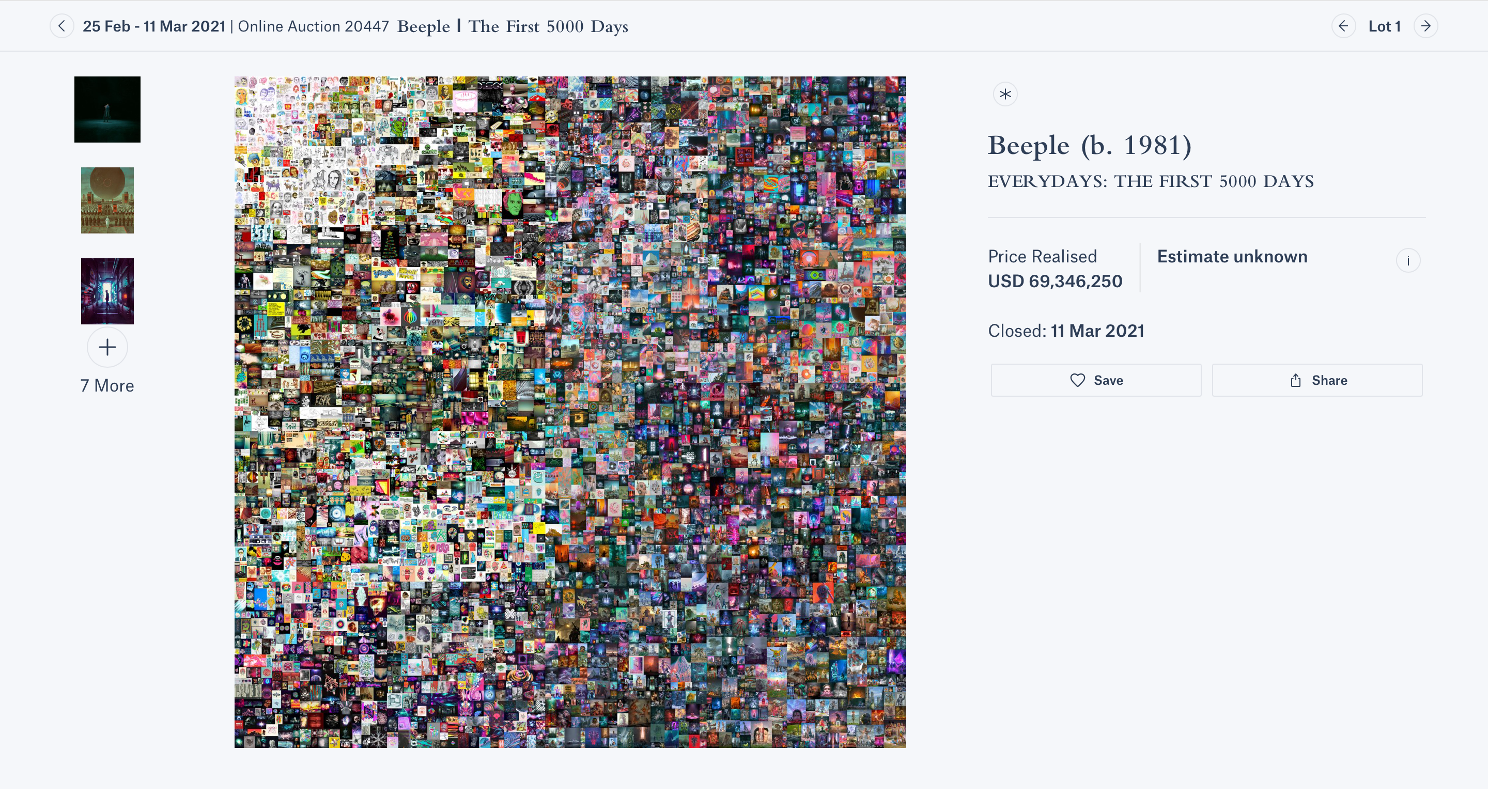NFTs are making headlines again, but this time it's for coming out on top as Collins Dictionary's Word of the Year for 2021.
Beating out other digital revolution-related words like crypto and metaverse, pandemic-driven words like double-vaxxed, pingdemic, and hybrid working, and pop culture references like Netflix's Bridgerton-inspired Regencycore, NFT is the latest addition to Collins Dictionary's Word of the Year hall of fame.
The selection of the Collins Word of the Year was made by lexicographers, editorial, marketing, and publicity staff from its Glasglow and London offices. So, how did Collins Dictionary define it?
What Is an NFT?
According to a blog post by Collins Dictionary, an NFT (non-fungible token) is “a unique digital certificate, registered in a blockchain, that is used to record the ownership of an asset such as an artwork or a collectible”. Creating a sort of digital scarcity, an NFT makes it possible to prove authenticity in a world of unlimited copies.
In 2021, the term NFT was everywhere, especially after Christie's held its first-ever digital art auction on March 11th. For the first time in history, a major auction house sold a purely digital NFT.
Digital artist Mike Winkelmann or Beeple sold a collage of images he'd created for $69 million. Aside from this, the infamous NFT sale of Twitter CEO Jack Dorsey's first tweet for $2.9 million also made headlines worldwide.
The Positive Shift Signalled by Collin's Dictionary for Word of the Year
Surprisingly, the announcement of NFT as the 2021 word of the year sparks a positive change in the air, especially because the Collin's Dictionary's Word of the Year for 2020 was “lockdown”. As the world reels from a year of dealing with a global pandemic, we can all hope that we'll be talking less about coronavirus and its effects moving forward.
While collectively, the verdict is still not out on whether NFTs are here to stay, Collins Dictionary immortalizes it as a word that signifies a positive shift in sentiment for its readers. In many ways, winning over dread-inducing words signal Collin's Dictionary's attempt to highlight innovation, instead of the chaos happening in our times.

.jpg)
